
views
Improving Your Experience

Be nice to everyone. Even if people are mean to you, be nice to everyone at school. Don’t gossip or start rumors. When you talk to people, be polite and kind. If you are nice to everyone, no one can say anything bad about you. Smile at people and don’t avoid making eye contact.

Write in a journal. Vent out all your painful emotions. All the things you want to say out loud but may feel to scared or shy to say, write them down. Write down what is happening and how you are feeling. You can write all of your painful feelings out on a paper and then burn it safely. Especially if you are shy, having a journal to express your feelings can be helpful.
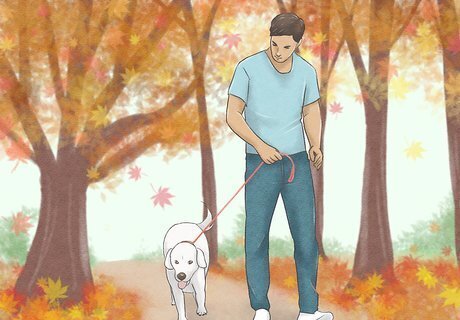
Increase your confidence. Exercise is a great way to bust stress and help you feel good about yourself. If going to the gym isn’t your thing, there are plenty of things you can do to move and sweat. Jump on a trampoline, take your dog for a walk, or ride your bike. You can also dance, ice skate, or do tae-bo. Do things that interest you and that you enjoy! Learn a new skill. Learning something new can increase your confidence as well as show you your progress as you keep working with it.
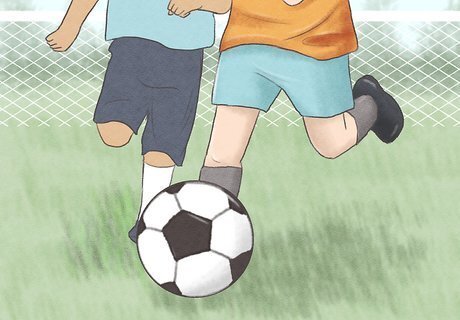
Join sports or clubs. While it may feel like nobody likes you, you can try to join different clubs or teams to make friends that share similar interests as you. This can be at school or outside of school. Look into different clubs at school such as drama club, yearbook, poetry club, and activities like music or sports. Outside of school you can join like karate, dance, and spiritual organizations. Think about what may interest you, then go check it out. You may feel weird or out of place at first, but give it a shot. Sometimes the hardest part is going to your first meeting. You might feel really anxious or tell yourself all kinds of stories that no one will like you or that you’ll be ignored. Don’t listen to any of it! Just go one time, and give it a try. Remember that all the people there share that same interest. Try getting to know other club members by asking them, “When did you first get into photography?” or, “How long have you done karate?” or, “Who’s your favorite poet?”

Focus on positive experiences. Instead of dwelling on thoughts that nobody likes you or that people are mean to you, change your perception. There’s no need to replay negative situations in your head over and over. By focusing on the past on your negative experience, you actually empower the people that hurt you. Instead, empower yourself by creating positive thoughts about yourself. It may be easy to get stuck on a loop of when people rejected you. (“What did I do? What could I have done differently? Why were they so mean?”) but get off that loop as soon as possible. These people do not define who you are, and their opinion is only an opinion, not a fact. . Think about the positive qualities you possess (like being kind, compassionate, caring, and generous) and your unique abilities (such as being a great dancer and big brother).
Increasing Social Skills
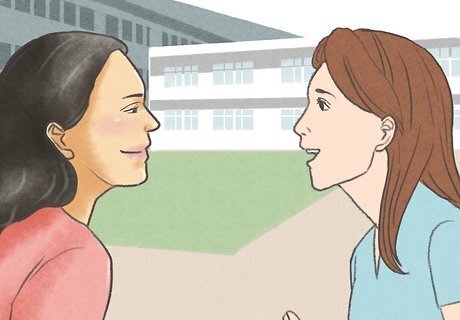
Observe people with great social skills. Lots of people who feel socially shy, anxious, or find communication difficult often focus on themselves and their own social performance. Look at someone at your school that is popular, gets along with people, and has lots of friends. What does this person do that makes him or her so likeable? Notice the way this person stands, body language, facial expressions, and the way he or she interacts with others, verbally and nonverbally. See the positive things this person brings to social interactions, and practice them in your own interactions. When you’re focused on yourself, you may miss the cues that other people give you. Start to notice cues that people give in other interactions, and see if you can start to pick up on cues in your own interactions.

Communicate with body language. If you cross your arms and legs and look down, it’s unlikely people will see you as a warm and inviting person to talk with. Instead, make sure you communicate your openness by appearing open in your body: lean toward people, smile, nod your head, and maintain comfortable eye contact. Try and avoid crossing your body, but keep your shoulders open and not hunched. When making eye contact, it’s okay to look away; no need to lock eyes indefinitely. You can also look at different focal points such as the forehead, nose, mouth, between the eyes). If you’ve generally avoided eye contact in the past, it may be a difficult practice to adopt, but keep at it.

Be a great listener. Don’t feel 100% responsible for carrying a conversation. If you’re so wrapped up in thinking about what to think next, you may miss what the other person is saying. Listen to what the other person is saying, and ask questions that build on what is said. For instance, if someone tells you, “I like to garden”, ask “What kind of plants or flowers do you grow?” or “How did you get into gardening?” Active listening means you put your attention onto what is being said and show interest in it and the person. Don’t be afraid to nod your head, say “oh yeah” or “really?” or “Wow! That’s fascinating!” to show that you are listening along.

Practice your social skills. It’s one thing to know what to do, it’s another to practice these skills! Practice different skills with people you feel comfortable with first, then start using your skills more broadly with people at school. Remember that the more you practice, the more natural it will begin to feel. Even if it feels completely out of your comfort zone, keep practicing! It will become easier.
Handling Mean People
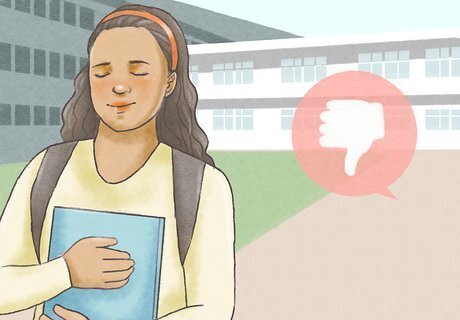
Walk away. When you walk away from a bully, you show that that person doesn’t have control over your actions or emotions. Engaging the person means you are meeting him or her on the same level. You don’t need to engage this person, and there’s no use putting any of your energy into the situation. Remember that you choose your response. Is it worth engaging with this person? It may be better to just walk away and not even bother.
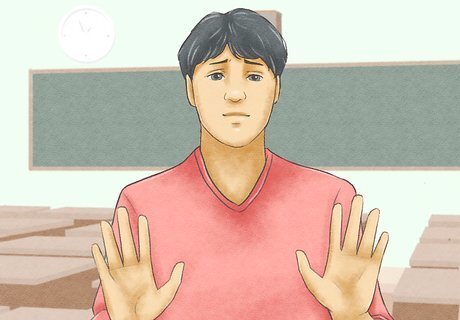
Withdraw. If someone is harassing you or egging you on, calmly tell this person that you are not interested in engaging with him or her. Remember the person can only bully you if you give him or her power over your emotions. Once you no longer seem to care what this person thinks, he or she may become bored or disinterested. If the person persists, ignore the person. Say, “I don’t want to talk to you” or “This doesn’t interest me.” Remember that you have control over how (or if) you react. If it isn’t worth your time, say so.

Keep a wide perspective. Ask yourself, “Will I remember this situation in 1 year? What about 5 years? Will this affect my life then?” If not, determine to spend your energy and time elsewhere. Also ask yourself if these are people that will continue to be in your life for a long time. If you have plans to go to college or move, it’s likely these people will be gone from your life soon enough.

Be funny. If someone is being mean to you, respond with a joke or with some humor. Humor completely disarms someone trying to hurt you, and he or she may be too surprised to know how to respond. When you use humor, it shows that this person has no control over you. If a mean person targets you and you respond with a joke, it’s likely he or she will lose interest in trying to hurt you. If someone is making fun of your shoe size, say, “You’re probably right. I tried out for the Lord of the Rings but I guess my feet weren’t hairy enough.”
Reaching Out For Support

Talk to your parents. Your parents want to help you and support you. If you are struggling, consider asking your parents for help and guidance. They may share how things were difficult for them when they were your age, and what helped get them through difficult times at school.

Connect to friends. There may be other kids at school who feel similar to you. If you know other kids that are struggling, reach out to them. Maybe they have been bullied, had rumors spread, or are having a hard time adjusting. Whatever it is, offer your friendship to other people that struggle and show them that you understand and are there for them. If several of your friends feel bullied by someone, approach the person altogether. There’s strength in numbers, and standing in unity will show that you are strong together.
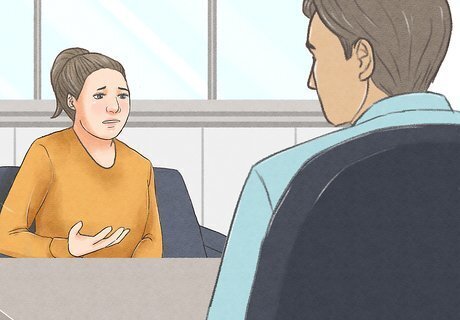
Talk to a teacher or guidance counselor. Especially if people are mean to you at school, talk to an adult at your school that you trust. You may just want to talk about the situation, or seek some action toward the people hurting you. Even if talking about it doesn’t change the situation, it can change how you feel. You can also talk to a coach, friend’s parent, or spiritual leader.

See a therapist. If you struggle deeply at school and feel like nothing you do will make it better, ask your parents about seeing a therapist. A therapist can help you work through the emotions you have, find ways to cope with negative feelings, and help you become more self-aware. Seeing a therapist doesn’t mean you’re “crazy” or incapable of handling your own problems. It just means you’re reaching out for help from someone who’s been trained to support you and help you grow.

Have compassion on yourself. Even if it feels really hard, remind yourself that you deserve to be treated with respect, by other people and most importantly, by yourself. You are worthy and valuable, no matter how people treat you. Remember that other people’s perceptions of you doesn’t make up your identity, you choose who you are. Above all, treat yourself kindly. When you emotionally beat yourself up (“I’m so stupid” or “nobody likes me”), be your own best friend and stick up for yourself. Find ways to respond to your negative thoughts in a way that makes them untrue. If you think, “I’m stupid”, think of all the things that make you smart, and it doesn’t have to be school. You may be smart in math, or in building things, or problem solving difficult situations.




















Comments
0 comment